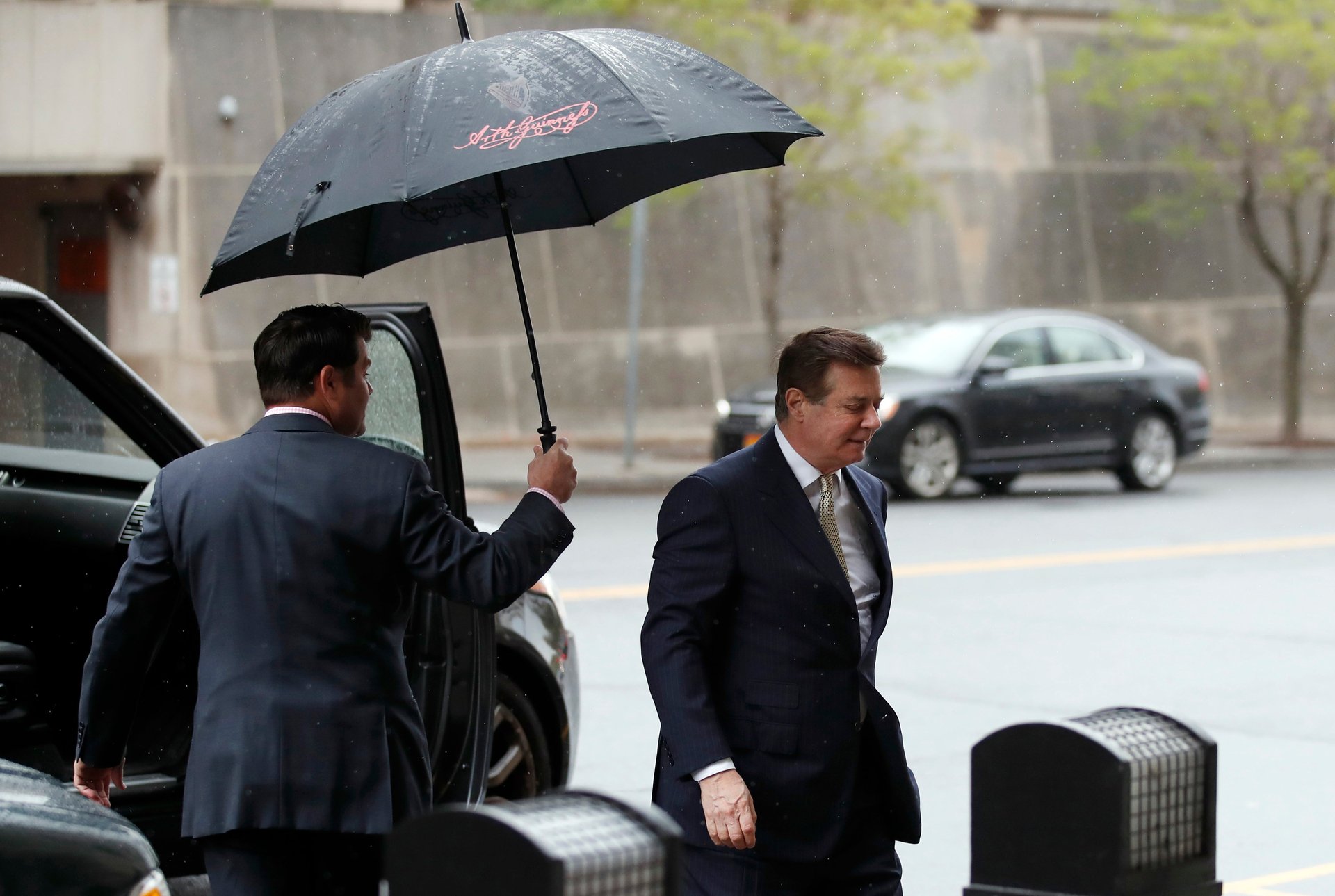Trump’s campaign chairman is going on trial—but no one’s allowed to mention the campaign
Former Trump presidential campaign chair Paul Manafort goes on trial next week as part of the probe into Russia’s meddling in the 2016 US election—but don’t expect to learn too much about any actual election meddling.


Former Trump presidential campaign chair Paul Manafort goes on trial next week as part of the probe into Russia’s meddling in the 2016 US election—but don’t expect to learn too much about any actual election meddling.
Judge T.S. Ellis III has reportedly banned all but one mention of the actual campaign from the trial. Despite being brought by special counsel Robert Mueller’s office, the criminal case against Manafort has almost nothing to do with the 2016 election. Instead, Manafort is being tried for bank fraud and money laundering, allegedly committed while working as a spin doctor in Ukraine for clients including former president Viktor Yanukovych.
Since the trial is about an apparently unrelated history of alleged money laundering, Manafort’s lawyers have argued that any mention of the Trump campaign should be banned because it could prejudice the jury. Ellis granted their request, with the exception of discussing two loans worth $16 million that Manafort took out from one bank in 2016: Prosecutors allege that a banker overlooked Manafort’s fraudulent application in exchange for a role on the Trump campaign—which he was given—and in the administration, which didn’t happen.
“The main reason Manafort is on trial is that he’s thought to have information about other things within the purview of the special counsel relating to Russia and the Trump campaign and collusion,” says Paul Rosenzweig, a senior fellow at the conservative R Street Institute think tank. In other words: Mueller may be prosecuting Manafort in order to pressure him to take a plea deal, in which he might offer up any information he might have about Trump and the Kremlin.
The fact that Manafort hasn’t yet taken a plea, despite Mueller’s strong case against him (Rick Gates, Manafort’s former right-hand-man, is a star witness) suggests he might be holding out for a pardon from Trump, says Steve Vladeck, a law professor at the University of Texas.
Vladeck doesn’t rule out a surprise revelation, though. “The remarkable thing about criminal trials is that lawyers have a habit of keeping the aces up their sleeves,” he says.